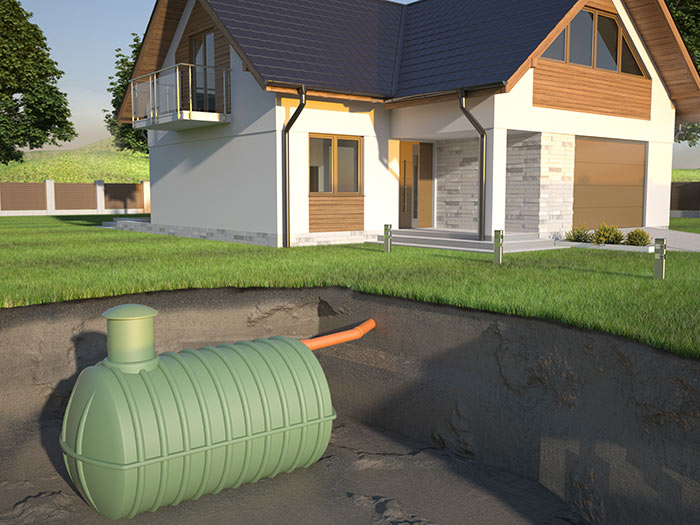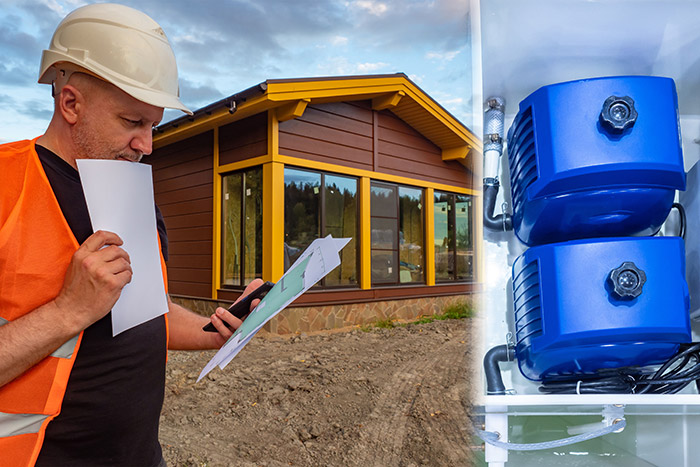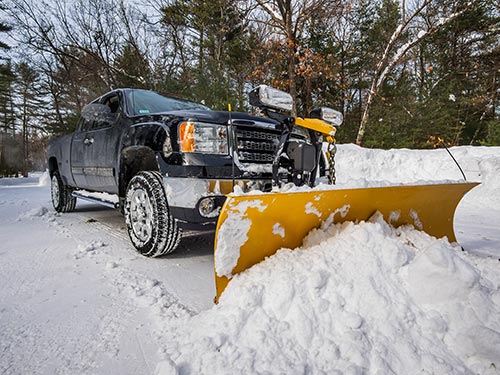
It could become a turnoff when you search property listings and find a home with a septic tank. If you aren’t used to septic system installations, it’s easy to imagine that they will be costly and difficult to repair.
While this doesn’t need to be the case if you take certain precautions, the cost of septic systems could be significant if everything needs to be replaced.
We look at the things you need to know if you are considering buying a home with a septic system.
How septic system installations work
The wastewater leaves your home through pipes under your yard and into the tank, where the solids settle on the bottom.
Bacteria break down these solids releasing grease and fats that rise to the top. Filters prevent these by-products from leaving the tank, while the remaining wastewater exits the tank and into the drain field, where it filters into the soil.
Septic tank myths
There are many misconceptions about having this type of installation in your home. Let’s clear up some of these incorrect assumptions about septic systems.
- Septic systems are rarely used nowadays. It is estimated that around 20% of homes in the United States use a septic system to deal with their wastewater.
- Septic systems fail a lot. While they require maintenance, these systems should be able to last for many decades if this is done properly.
- Septic systems create an unpleasant smell. The odor shouldn’t be a problem if the system has been maintained. If there is a bad smell, it is likely maintenance hasn’t been done regularly.
- Septic systems cause contamination. A correctly installed system should not cause contamination of well water. It is recommended that there should be a gap of 50 feet or more between a septic system and a well.
- Septic system maintenance
Like any other part of your home, the septic system will require maintenance to ensure it functions correctly. The following precautions will reduce the likelihood of things going wrong:
- You need to be careful with what you put in the septic tank. Diapers, feminine products, disposable wipes, kitty litter, and paint shouldn’t be flushed down the toilet or poured down the plughole. Chemicals should not be allowed to enter the septic tank either, and this includes additives that are designed to break down solids in the tank.
- Avoid planting trees or bushes near the drain field. Some plants can have long roots that will enter the drain field and even the septic tank, causing damage.
- Do not park vehicles above the septic system. The weight of the vehicle could damage the pipes.
- The septic tank needs to be pumped out every few years. You will need to hire a professional every 2 or 3 years to pump the tank to ensure it continues to work.
When does a septic tank need to be replaced?
If you notice any issues like odors, toilets not flushing correctly, and damp areas above the drain field, these could be signs of serious problems with the septic system.
If you notice any of the following issues, call in a professional to check:
- Sinks and bathtubs that take a long time to empty
- Toilets taking longer to flush
- Exterior drains making gurgling noises
- An odor from the drain field or septic tank
- Water pooling above the drain field
- Vegetation above the drain field growing faster than in surrounding areas
- Have the septic tank inspected
When you make an offer on a home, it is normally contingent on the home inspection. However, home inspections don’t check the septic system, and you must hire a specialist inspector.
Like inspecting a well, a septic system inspection is crucial. Your buyer’s agent should be able to provide a referral to an inspector.
The septic system cost to replace everything could be considerable, so you want to ensure there aren’t problems before buying the home.
The inspection should involve either using cameras to inspect the drain field and pipe work or they might dig inspection holes.
If you don’t want the inspector to make holes in your yard, check which method they will use before you hire them.
During a septic tank inspection, maintenance and pumping records should be checked. The inspector will look for any indication of leaks and check the levels of sludge in the tank.
The age of the septic tank is also important and shows if it is nearing the end of its useful life, the inspector will find the age of the tank.
Final thoughts
Buying a house with one might be off-putting if you aren’t familiar with septic systems. While a septic system does require additional maintenance, if this is done correctly, the system could go for 50 years or more without replacement.
If you find a listing you like with a septic system, it shouldn’t put you off, and make sure you get it inspected before closing on the home.
Contact Morse Engineering and Construction for more information.
rismedia.com



